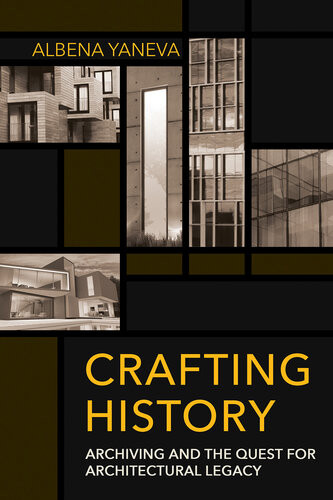

Most ebook files are in PDF format, so you can easily read them using various software such as Foxit Reader or directly on the Google Chrome browser.
Some ebook files are released by publishers in other formats such as .awz, .mobi, .epub, .fb2, etc. You may need to install specific software to read these formats on mobile/PC, such as Calibre.
Please read the tutorial at this link: https://ebookbell.com/faq
We offer FREE conversion to the popular formats you request; however, this may take some time. Therefore, right after payment, please email us, and we will try to provide the service as quickly as possible.
For some exceptional file formats or broken links (if any), please refrain from opening any disputes. Instead, email us first, and we will try to assist within a maximum of 6 hours.
EbookBell Team

4.8
74 reviewsWhat constitutes an archive in architecture? What forms does it take? What epistemology does it perform? What kind of craft is archiving? Crafting History provides answers and offers insights on the ontological granularity of the archive and its relationship with architecture as a complex enterprise that starts and ends much beyond the act of building or the life of a creator.
In this book we learn how objects are processed and catalogued, how a classification scheme is produced, how models and drawings are preserved, and how born-digital material battles time and technology obsolescence. We follow the work of conservators, librarians, cataloguers, digital archivists, museum technicians, curators, and architects, and we capture archiving in its mundane and practical course.
Based on ethnographic observation at the Canadian Centre for Architecture and interviews with a range of practitioners, including Álvaro Siza and Peter Eisenman, Albena Yaneva traces archiving through the daily work and care of all its participants, scrutinizing their variable ontology, scale, and politics. Yaneva addresses the strategies practicing architects employ to envisage an archive-based future and tells a story about how architectural collections are crafted so as to form the epistemological basis of architectural history.